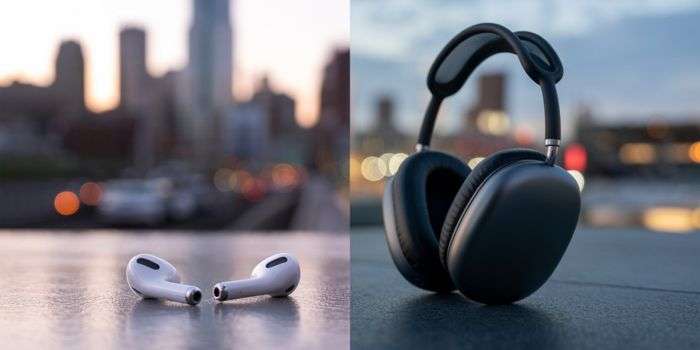Choosing between AirPods and traditional headphones depends largely on your lifestyle, sound quality expectations, and usage scenarios. AirPods offer wireless convenience and seamless integration with Apple devices, while headphones often provide superior sound quality and comfort for extended listening. This post breaks down the key aspects to consider before making your purchase.
Features
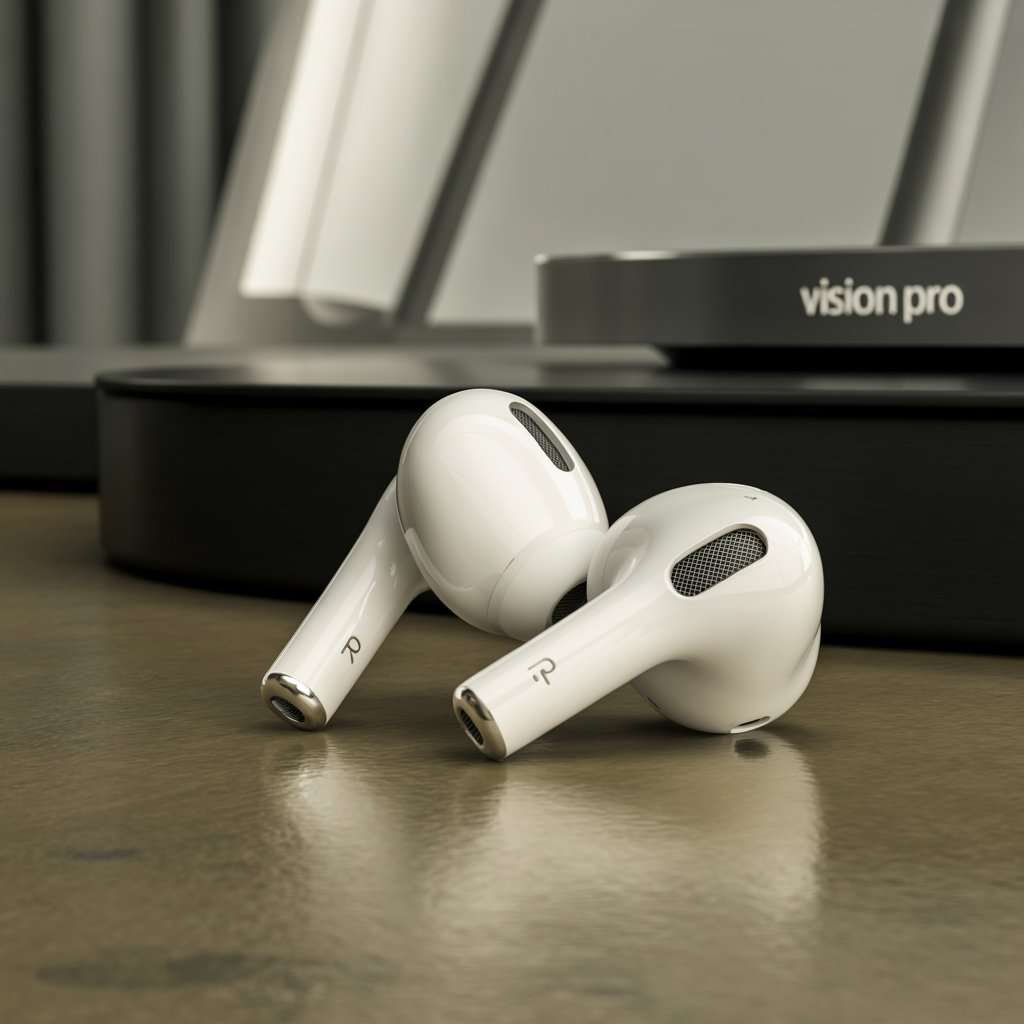
AirPods:
AirPods, especially the AirPods Pro, come with active noise cancellation (ANC), transparency mode, spatial audio, and adaptive EQ that adjusts sound based on your ear shape.
They are powered by Apple’s H1 or H2 chips, which enable quick device pairing, low latency, and voice assistant integration.
The latest AirPods Pro 2 offer dust resistance (IP54), USB-C charging, and support for 20-bit/48 kHz Lossless Audio with Apple’s Vision Pro headset, although high-resolution audio support is limited outside that ecosystem.
Headphones
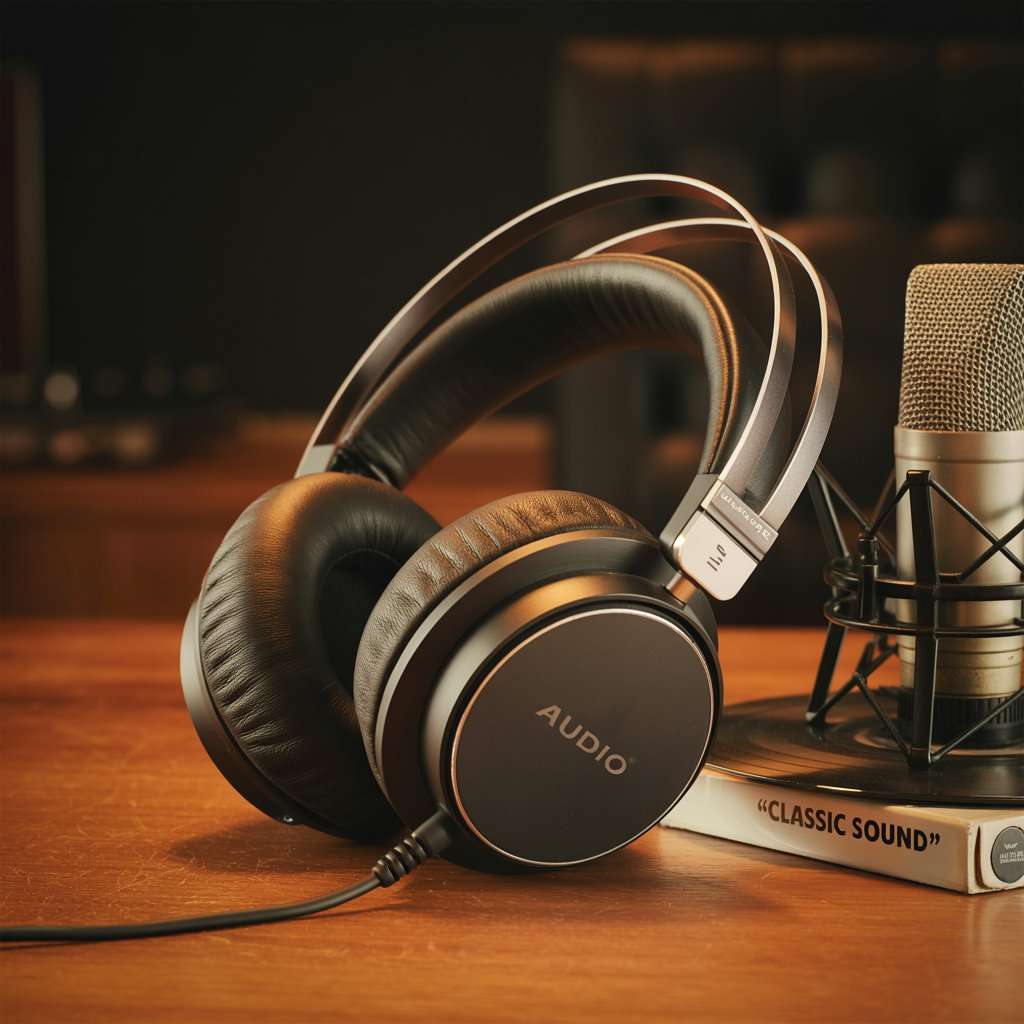
Traditional headphones come in over-ear, on-ear, and in-ear forms, often featuring larger dynamic drivers (30-50mm) that deliver richer, more linear sound quality.
Many models offer physical buttons, customizable ear pads, and superior passive noise isolation due to their closed-back designs.
Some wireless headphones also include ANC but rely on different technology compared to AirPods. Wired headphones do not require batteries and offer zero latency, making them ideal for gaming and professional audio use.
Build Quality
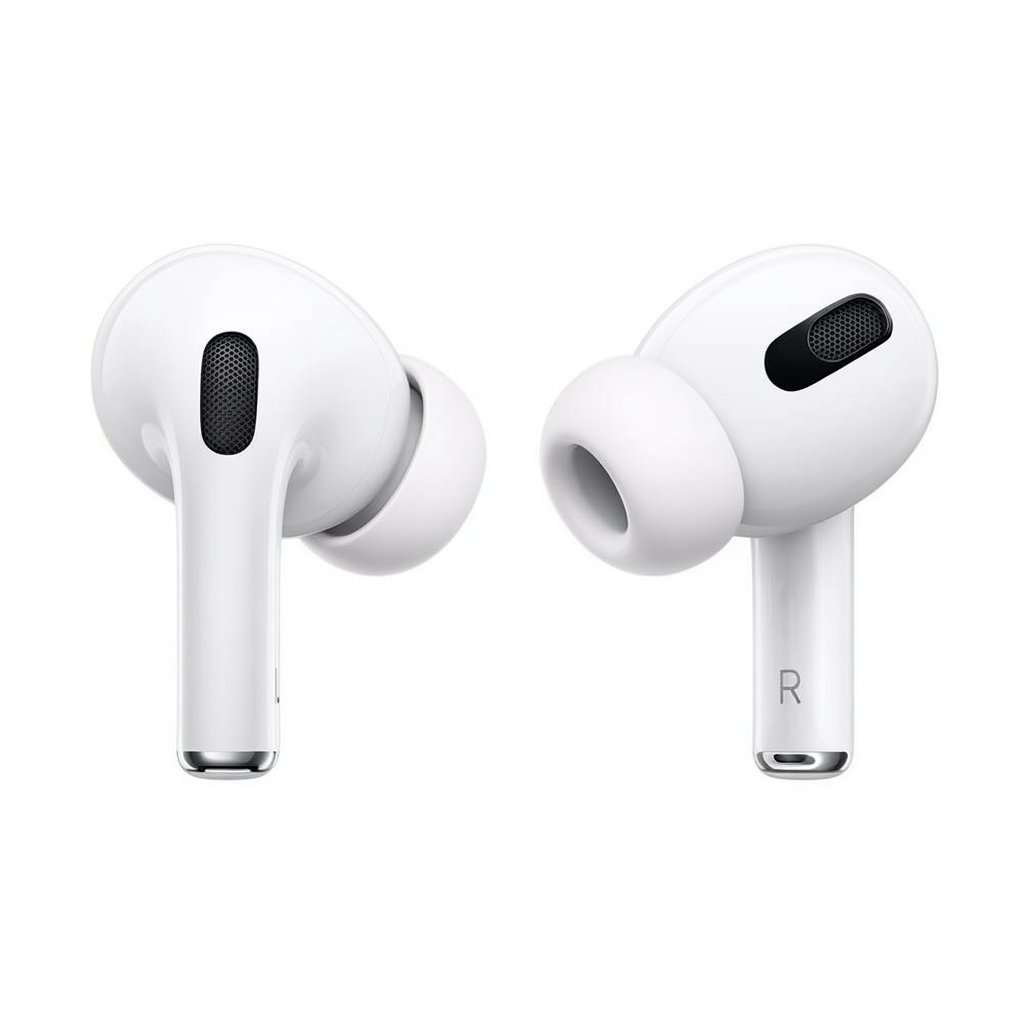
AirPods:
AirPods have a sleek, lightweight plastic build with a semi-open design that hangs from the ear. They are designed for portability and comfort but may cause cartilage discomfort during long sessions. The AirPods Pro include interchangeable silicone tips for a better fit and improved noise isolation.
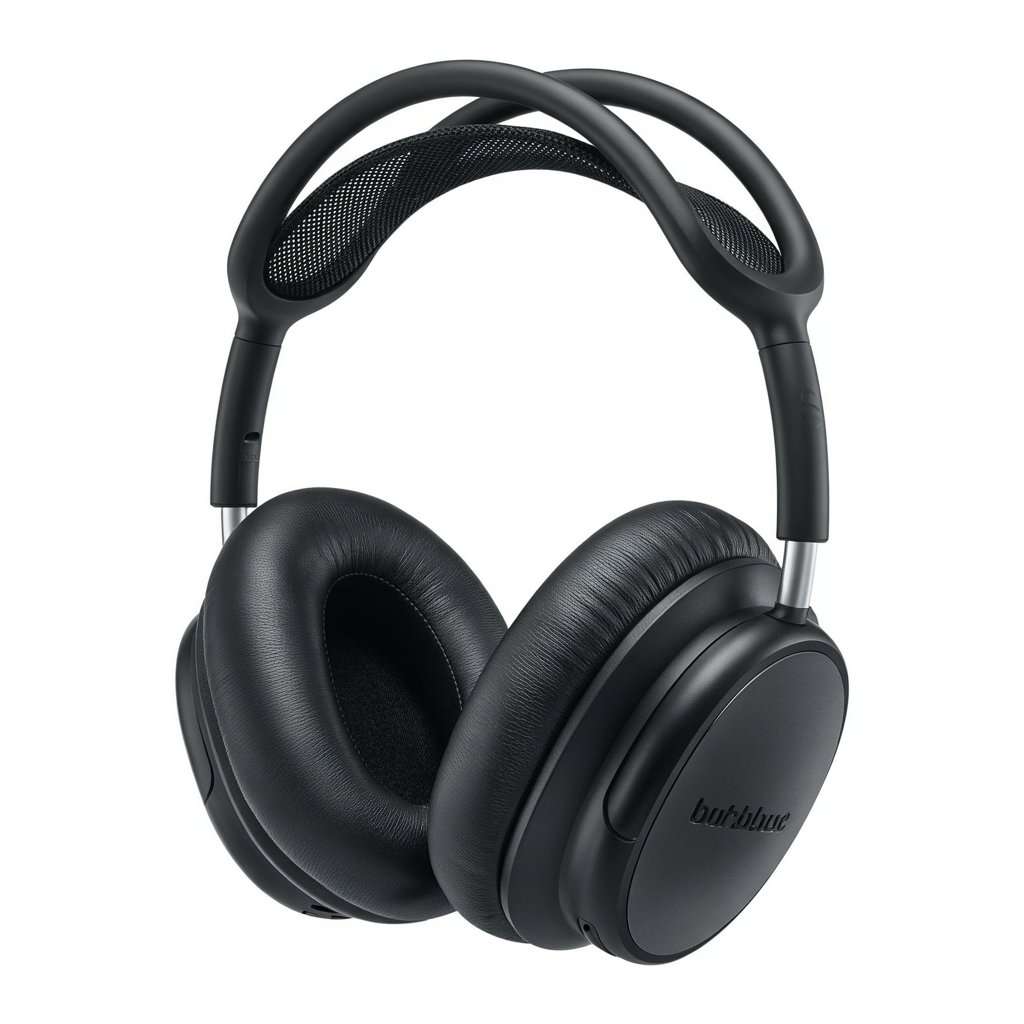
Headphones:
Headphones generally have a more robust build with cushioned ear pads and adjustable headbands for comfort during prolonged use. Over-ear models create a sealed chamber around the ear, improving sound isolation and comfort but can trap heat. They are usually heavier (200-400 grams) but distribute weight evenly across the head.
Connectivity
AirPods:
AirPods connect wirelessly via Bluetooth with seamless integration into the Apple ecosystem. The H1/H2 chips enable fast pairing, automatic device switching, and low latency. However, wireless transmission compresses audio, which may slightly reduce sound fidelity compared to wired connections.
Headphones:
Headphones come in wired and wireless variants. Wired headphones offer a direct analog connection with no latency and no battery dependency. Wireless headphones use Bluetooth, which can introduce some latency and occasional signal dropouts but provide freedom of movement. Some wireless headphones also support wired use when the battery is depleted.
Pros and Cons
| Aspect | AirPods | Headphones |
|---|---|---|
| Pros | Ultra-portable, easy to carry, seamless Apple integration, ANC (Pro), spatial audio, voice assistant support | Superior sound quality, customizable fit, no battery needed (wired), zero latency, better passive noise isolation |
| Cons | Limited battery life, potential fit discomfort, compressed audio, higher price for Pro models | Bulkier, less portable, heat buildup during long use, cables can be cumbersome (wired), battery dependency (wireless) |
Which Should I Buy?
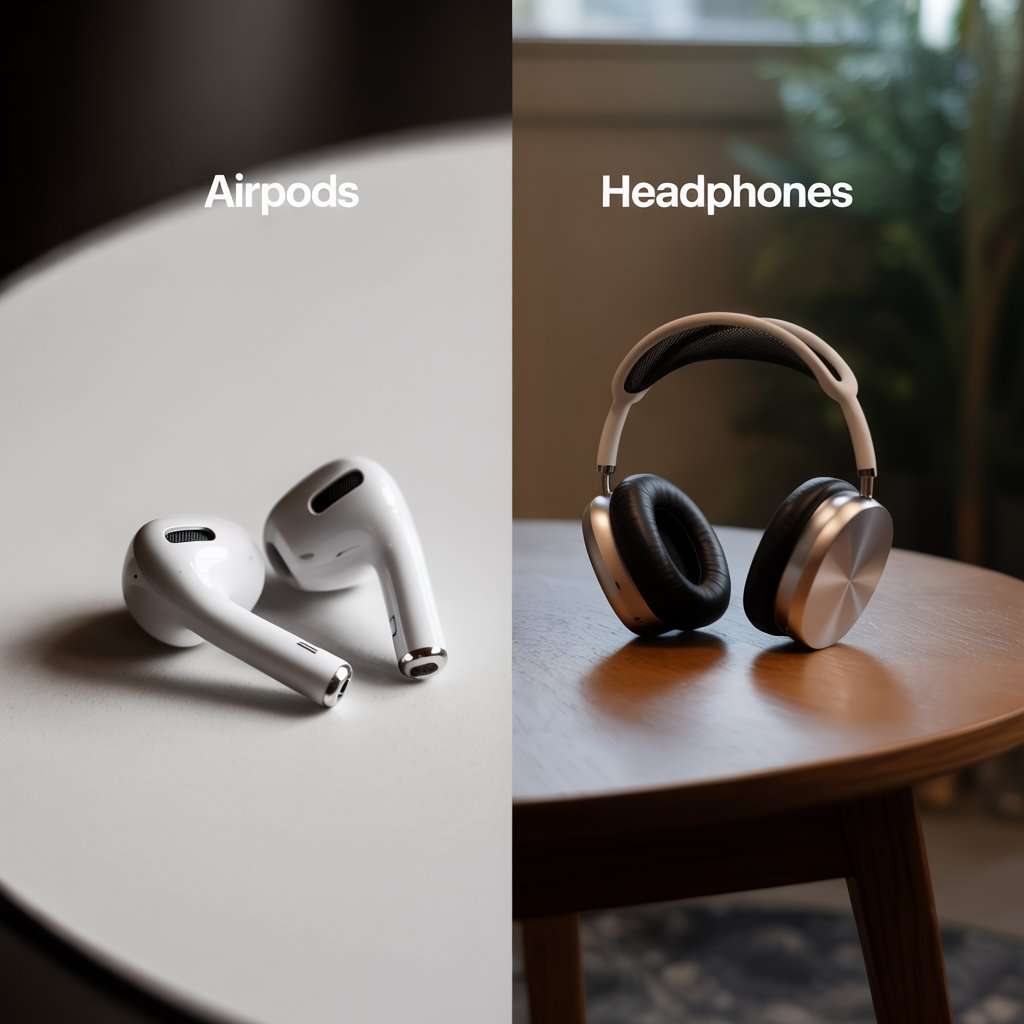
If you prioritize portability, convenience, and seamless integration with Apple devices, AirPods (especially the Pro model) are a great choice. They excel in noisy environments with effective ANC and offer modern features like spatial audio and adaptive EQ.
If you value superior sound quality, longer listening comfort, and don’t mind a bit of bulk or cables, traditional headphones are better. Wired headphones especially offer the best audio fidelity and zero latency, ideal for audiophiles and gamers.
Conclusion
Both AirPods and headphones have their strengths and weaknesses. AirPods shine in convenience, smart features, and portability, while headphones provide better sound quality, comfort, and durability for extended use. Your decision should align with your listening habits, environment, and budget. For casual, on-the-go listening, AirPods are excellent. For immersive, high-fidelity audio experiences, headphones remain the top choice.
Frequently Asked Questions
Q: Do AirPods have better sound quality than headphones?
Generally, headphones offer superior sound quality due to larger drivers and better acoustic isolation. AirPods prioritize convenience and smart features over pure audio fidelity.
Q: Can I use AirPods with non-Apple devices?
Yes, AirPods can connect via Bluetooth to non-Apple devices but some features like automatic switching and spatial audio may be limited.
Q: Are wired headphones better for gaming?
Yes, wired headphones have zero latency, making them ideal for gaming and watching videos without audio delay.
Q: How long does AirPods battery last?
AirPods typically offer around 4-6 hours of listening time per charge, with additional charges from the case extending total use to about 24 hours.
Q: Are AirPods Pro worth the extra cost?
If you need active noise cancellation and better fit options, the AirPods Pro provide significant improvements over standard AirPods, especially in noisy environments
